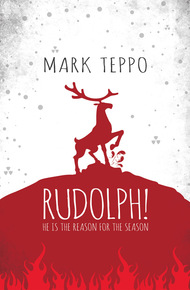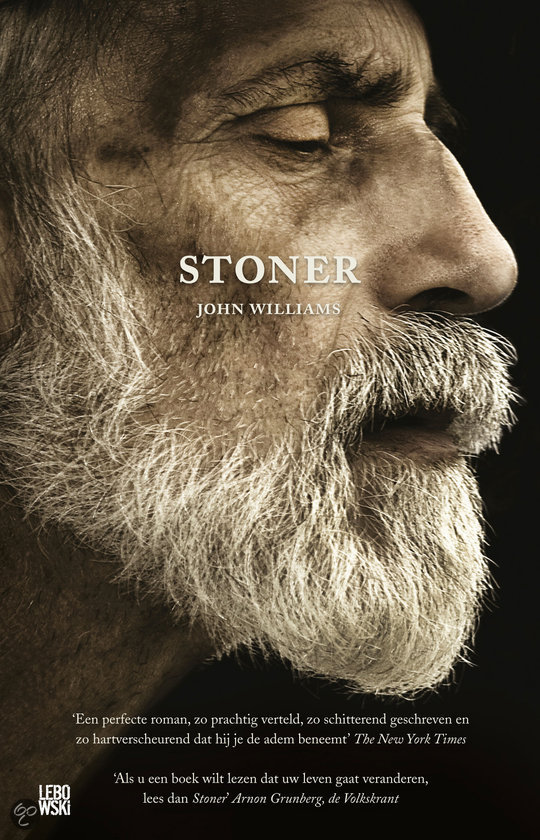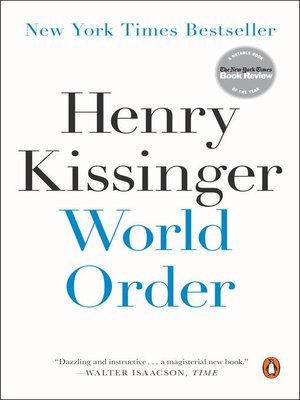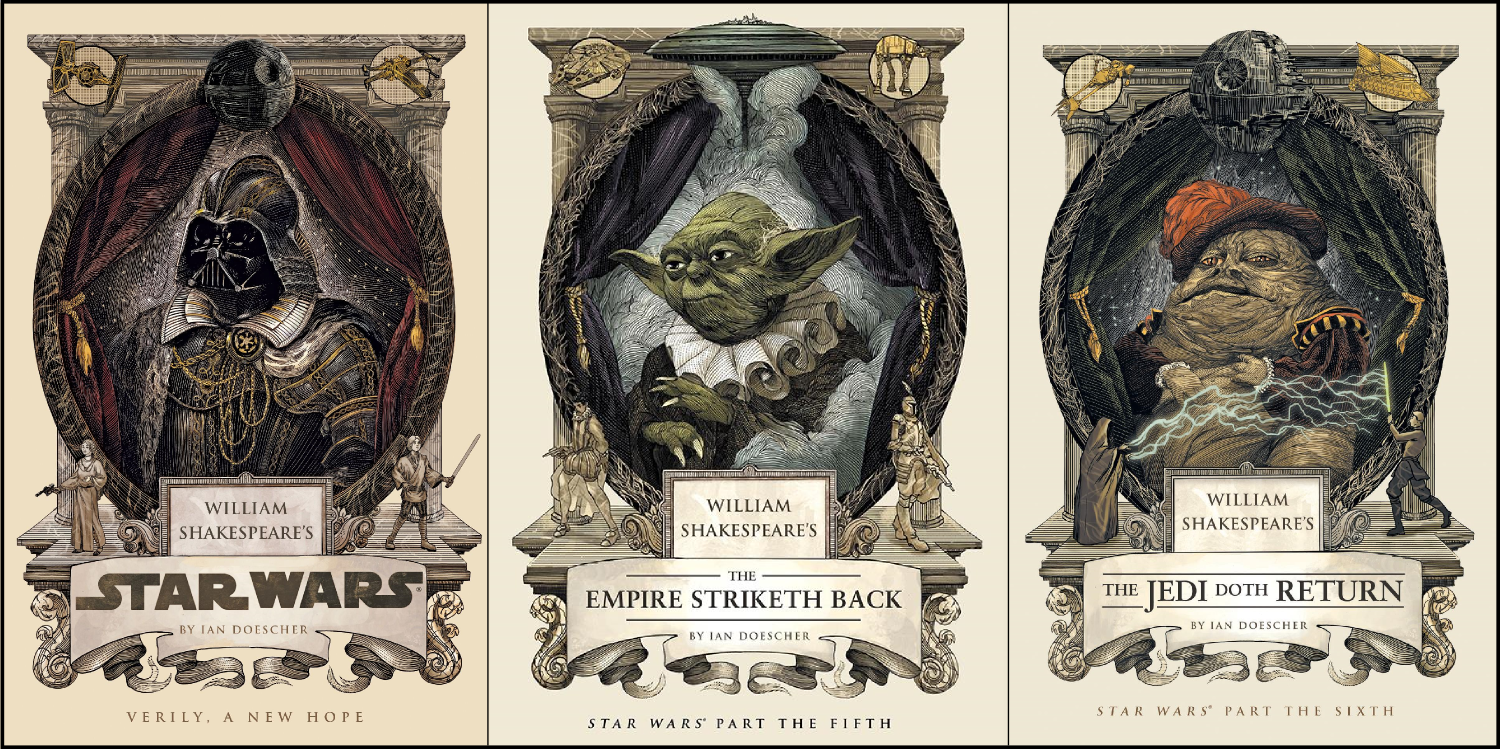You are using an out of date browser. It may not display this or other websites correctly.
You should upgrade or use an alternative browser.
You should upgrade or use an alternative browser.
What are you reading? (December 2014)
- Thread starter Maklershed
- Start date
- Status
- Not open for further replies.
Looks fun! My wife is already determined to destroy me at it but I'll do my best.
Christoff Yurievich
Member
I'm sure a single book you read fulfills 5 or more of those checkboxes.
That's no fun though.

Reading this right now because of the season. It's quite strange. I'm only 1/3 of the way through so it may get better. I mean, they're about to storm hell with reindeer to save Santa. What could go wrong.
Rudolph! is a first-person account of the behind the scenes workings at the North Pole. Narrated by Bernard Rosewood, one of the elves of the North Pole Consortium, the story begins with Santa's realization that a young girl's holiday request of getting her dad back for Christmas isn't going to happen. Dad, you see, died in a car accident on a snowy road shortly after Thanksgiving. The NPC can do a lot, but they can't do miracles.
Enter Rudolph, who has been hairless, cranky, and perpetually irradiated since the unfortunate malfunction of the Nuclear Clock in 1964. Rudolph is a survivor of the worst accident in the four hundred plus years of NPC delivery, and if there is anyone on staff who believes in miracles more than jolly St. Nick, it's Rudolph. Bernie, in a valiant effort to keep Christmas from going off the rails, is swept up into a Heaven-storming, Hell-crusading, Night of Bad Musical Numbers adventure to ensure that every child wakes up with presents on Christmas Morning. Rudolph! is a funny and fast-paced reaction to fifty years of world-weary cynicism, technological advances, and post-millennial ennui since Rankin & Bass brought a stop motion reindeer into our living rooms.
Sounds like a good way to read stuff I normally wouldn't bother with. I'm in.
Ranger Taffles
Member
Now this will make book hunting much more interesting.
MrOogieBoogie
BioShock Infinite is like playing some homeless guy's vivid imagination
About a third of the way through McCarthy's SUTTREE, and I'm a bit conflicted about the book. On one hand, I like the protagonist and setting and much of the dialogue is rich and natural; on the other hand, the prose and descriptions and endless detail bog down the plot and pace.
It's weird because BLOOD MERDIDIAN is one of my favorite novels of all time. The poetic writing works splendidly in that novel, and befits the romanticized themes and imagery of the Old West.
By comparison, the writing in SUTTREE seems more bloated, less evocative, and just plain unnecessary.
I'll keep reading, but unfortunately the book isn't quite living up to my expectations.
It's weird because BLOOD MERDIDIAN is one of my favorite novels of all time. The poetic writing works splendidly in that novel, and befits the romanticized themes and imagery of the Old West.
By comparison, the writing in SUTTREE seems more bloated, less evocative, and just plain unnecessary.
I'll keep reading, but unfortunately the book isn't quite living up to my expectations.
Finishing up The Looming tower. Still great but I don't mind taking my time with it.
Started up The Wind Up Bird Chronicle, first time reading this author. Like it, but dont like how the conversations are, dont feel realistic. Guess because its a translation.
I somehow doubt it.
This sounds like an interesting challenge. Maybe I'll do that for the 50 books challenge for next year. Or maybe I'll just read Pulitzer-Winning books. :-D
Nappuccino
Member
I somehow doubt it.
Yeah . . . Also the conversations in that book were my favorite parts.
Cameron122
Member
Excellent stuff

A third through Shakespeare's sonnets (lightly annotated, in The Complete Pelican Shakespeare from Penguin). I'm not reading the majority of them very thoroughly, but I have analyzed three or four of the better known ones before in various classes. This is language-porn at its best. It's all so elegant and clever and deep. Probably one of the most polished, near-perfect texts ever written.
So I might be currently trapped in a non-fiction funk. I decided to look at my next seven selection of books, and they are all historical or biographical. My love of fiction may be dying. :'-(
Also I made a horrible mistake reading about the Congo Wars while reading about The Apartheid. These are horrifically depressing to read through! I need to read a pick me up...which unfortunately my next book is a historical examination of the Bush Jr. era.
Edit: What's a good counterpart for Zinn's A People's History of the United States? I plan to read it in the near future, but I know the point of its creation was the counteract the 'Super Patriotic' government-mandated history books regarding the USA. Will I be fine just reading Zinn's novel (i.e. no major counterweight) if I understand that point?
Also I made a horrible mistake reading about the Congo Wars while reading about The Apartheid. These are horrifically depressing to read through! I need to read a pick me up...which unfortunately my next book is a historical examination of the Bush Jr. era.
Edit: What's a good counterpart for Zinn's A People's History of the United States? I plan to read it in the near future, but I know the point of its creation was the counteract the 'Super Patriotic' government-mandated history books regarding the USA. Will I be fine just reading Zinn's novel (i.e. no major counterweight) if I understand that point?
Tragicomedy
Member
Edit: What's a good counterpart for Zinn's A People's History of the United States? I plan to read it in the near future, but I know the point of its creation was the counteract the 'Super Patriotic' government-mandated history books regarding the USA. Will I be fine just reading Zinn's novel (i.e. no major counterweight) if I understand that point?
Absolutely.
Point of order: that book felt a heck of a lot more "important" when the Internet wasn't so prevalent. Reading it now, it's hard to see what the big deal is. Just a decently researched view into US history from the perspective of people usually on the losing end of the deal. It's a good read, but I'd be shocked if any concepts it presents are particularly new to you.
Yes, we all know Columbus was an awful man who murdered natives (and likely members of his own crew) and didn't discover anything. Yes, we all know that Vietnam was an unwinnable quagmire. Yes, we all know we were just as big (or bigger) instigators in the Cold War as the USSR. Etc.
Absolutely.
Point of order: that book felt a heck of a lot more "important" when the Internet wasn't so prevalent. Reading it now, it's hard to see what the big deal is. Just a decently researched view into US history from the perspective of people usually on the losing end of the deal. It's a good read, but I'd be shocked if any concepts it presents are particularly new to you.
Yes, we all know Columbus was an awful man who murdered natives (and likely members of his own crew) and didn't discover anything. Yes, we all know that Vietnam was an unwinnable quagmire. Yes, we all know we were just as big (or bigger) instigators in the Cold War as the USSR. Etc.
I still want to read through it, since I neglected to check out certain periods (like my knowledge of Wounded Knee is extremely limited). My knowledge of the Cold War is also super limited. I just really need to brush up on my modern history (that isn't related to Africa).
I also have to woo those hipster, academic ladies with my soon-to-be love of Zinn's work.
Is it safe to assume that A Patriot's History and possibly A History of the American People are both dribbles that should be disregarded and banished to an abyss?
Tragicomedy
Member
I still want to read through it, since I neglected to check out certain periods (like my knowledge of Wounded Knee is extremely limited). My knowledge of the Cold War is also super limited. I just really need to brush up on my modern history (that isn't related to Africa).I also have to woo those hipster, academic ladies with my soon-to-be love of Zinn's work.
Is it safe to assume that A Patriot's History and possibly A History of the American People are both dribbles that should be disregarded and banished to an abyss?
Will Hunting taught me that knowledge of Zinn = you'll get all the ladies! Personally, I don't suggest reading his whole book, but rather the sections that interest you. It's a very uneven 729 pages, and not all worth the effort.
Might as well check out Loewen's "Lies My Teacher Told Me" while you're on that kick.
http://www.amazon.com/Lies-My-Teacher-Told-Everything/dp/0743296281
I haven't read those other two. Most of my historical knowledge on the US falls in two categories: 1) the Federalist Papers (a must read along with Felix Morley's "Freedom and Federalism"), and 2) Vietnam.
I still want to read through it, since I neglected to check out certain periods (like my knowledge of Wounded Knee is extremely limited). My knowledge of the Cold War is also super limited. I just really need to brush up on my modern history (that isn't related to Africa).I also have to woo those hipster, academic ladies with my soon-to-be love of Zinn's work.
Is it safe to assume that A Patriot's History and possibly A History of the American People are both dribbles that should be disregarded and banished to an abyss?
Just to warn you most academic historians think Zinn is a pretty poor historian.
Wineburg, one of the world's top researchers in the field of history education, raises larger issues about how history should be taught. He says that Zinn's desire to cast a light on what he saw as historic injustice was a crusade built on secondary sources of questionable provenance, omission of exculpatory evidence, leading questions and shaky connections between evidence and conclusions.
http://news.stanford.edu/news/2012/december/wineburg-historiography-zinn-122012.html
I am personally reading through the Oxford history of the United States and think it is fantastic. If you don't want to tackle something that huge, I would recommend listening to the Great Courses series.
I am currently listening to http://www.audible.com/pd/History/L...-and-the-Age-of-Napoleon-Audiobook/B00DN98N86
And it is fantastic. I havent read any of the American history offerings, but I imagine that they are of somewhat comparable quality
http://www.audible.com/pd/History/T...=13042010&pf_rd_p=1973557002&pf_rd_s=center-6
This looks like a survey course
http://www.audible.com/pd/History/T...f=a_search_c4_1_1_srTtl?qid=1419985407&sr=1-1
This looks like it is something similar to Lies my teacher told me or Zinn, but taught by a history professor. There are a number of other American history courses as well if those don't interest you
Google 2 free audible books to get these or other audiobooks for free
Looking at the stuff I read this year I probably got majority of them done. Will keep it in mind for 2015 though see if I can get them all done.
I shall give it whirl.
Maklershed
Member
Loving The Son. Thanks eznark.
(I kinda wish there was nothing but Eli's story)
Just to warn you most academic historians think Zinn is a pretty poor historian.
http://news.stanford.edu/news/2012/december/wineburg-historiography-zinn-122012.html
I am personally reading through the Oxford history of the United States and think it is fantastic. If you don't want to tackle something that huge, I would recommend listening to the Great Courses series.
I am currently listening to http://www.audible.com/pd/History/L...-and-the-Age-of-Napoleon-Audiobook/B00DN98N86
And it is fantastic. I havent read any of the American history offerings, but I imagine that they are of somewhat comparable quality
http://www.audible.com/pd/History/T...=13042010&pf_rd_p=1973557002&pf_rd_s=center-6
This looks like a survey course
http://www.audible.com/pd/History/T...f=a_search_c4_1_1_srTtl?qid=1419985407&sr=1-1
This looks like it is something similar to Lies my teacher told me or Zinn, but taught by a history professor. There are a number of other American history courses as well if those don't interest you
Google 2 free audible books to get these or other audiobooks for free
Read through your article and it seems like certain parts of Zinn's work are valuable, according to Winneburg. Seems like his biggest criticism spawns from the 1930s to the Cold War. So I'll probably still read Zinn's book, but avoid those portions of it. Now I won't be *only* learning about history via Zinn, which seems to be Winneburg's biggest grievance, only learning history via one perspective, which I fully agree with him on that issue.
The Oxford stuff might be useful for the World War II era, and I'll be reading other historical works during my time in South Africa. Those Pulitzer books won't read themselves!
Wafflecakes
Member

On book 2, really enjoying it so far
Summary? Read 4 books in the last few weeks, and none has hooked me all that much.
Finished The Martian by Andy Weir and it was good. You get your mix of hard science and a tale of survival against all odds. Mars wants the hero dead and his equipment wants to quit at the worst moments. If you like the stories about survivors of accidents stranded in remote locations then you should probably give this one a read as our hero is stranded on a planet all alone. I really like it.
Edit: Finished it before New Year's Eve like I wanted, so yay.
Edit: Finished it before New Year's Eve like I wanted, so yay.
RepairmanJack
Member
Finished The Shining, overall I think it was kind of meh? I'm not sure, still figuring out how I felt overall. I liked the first half a lot more than the second half. It seemed a lot better at build up than it did at the actual pay off on a lot of things it was doing. Jack just seemed to go from 1 to 3 to 10 suddenly and we were supposed to understand the whole wanting to be wanted aspect. It did more focusing on his anger issues than seemingly anything that actually made him susceptible to the overlook. They hedge animals were cool as an idea, at least until they started attacking Hallorann. That was just kind of dumb. I kind of just wanted more from the haunted hotel, which is odd for me because I usually hate those type of horror stories.
A third through Shakespeare's sonnets (lightly annotated, in The Complete Pelican Shakespeare from Penguin). I'm not reading the majority of them very thoroughly, but I have analyzed three or four of the better known ones before in various classes. This is language-porn at its best. It's all so elegant and clever and deep. Probably one of the most polished, near-perfect texts ever written.
Have been lucky enough to meet Orgel a few times. Huge mind.

A third through Shakespeare's sonnets (lightly annotated, in The Complete Pelican Shakespeare from Penguin). I'm not reading the majority of them very thoroughly, but I have analyzed three or four of the better known ones before in various classes. This is language-porn at its best. It's all so elegant and clever and deep. Probably one of the most polished, near-perfect texts ever written.
I got the Arden edition of Shakespeare's Sonnets for Christmas, and I'm looking forward to reading it, and Helen Vendler's The Art of Shakespeare's Sonnets sometime after that. I haven't read or watched many of Shakespeare's plays; just Hamlet, King Lear, A Midsummer Night's Dream, The Merchant of Venice, and Romeo and Juliet). - and A Midsummer Night's Dream and Romeo and Juliet I haven't read since high school.
Tragicomedy
Member
Summary? Read 4 books in the last few weeks, and none has hooked me all that much.
I quite liked that series, but you have to take it for what it is. A caricature villain and somewhat stereotypical hero. The highlight is that Weeks can write the shit out of an action scene. There's some chopsocky goodness to be had in here.
Seeing the Shakespeare discussion, I must admit something quite dreadful: I would love to read his plays, but I despise his writing style. :-(
Charles and Mary Lamb got you covered.
Tragicomedy
Member
Seeing the Shakespeare discussion, I must admit something quite dreadful: I would love to read his plays, but I despise his writing style. :-(
You mean that strictly adhering to iambic pentamenter hinders the readability of his work?
I've read almost all of his stuff and I tend to agree with you. From a technical standpoint, it's spectacular. There are a few more popular segments that are forever imprinted in my mind. But as a whole...yeah, I agree with you. I don't enjoy him outside of an academic setting.
Seeing the Shakespeare discussion, I must admit something quite dreadful: I would love to read his plays, but I despise his writing style. :-(
Well, you're wrong. I enjoyed this; maybe it would help you get an appreciation for some of the things he does:

It's not super in-depth or anything, but it gives you things to look for.
Charles and Mary Lamb got you covered.
I'm figuring these two rewrote his works to make it much more readable for today's audience?
You mean that strictly adhering to iambic pentamenter hinders the readability of his work?
I've read almost all of his stuff and I tend to agree with you. From a technical standpoint, it's spectacular. There are a few more popular segments that are forever imprinted in my mind. But as a whole...yeah, I agree with you. I don't enjoy him outside of an academic setting.
And you nailed it. I understand why people love his writing style, but as a non-academic (at least in the writing department) I don't want to take out a secondary source to understand why Shakespeare is saying. This isn't meant to be Ulysses!
RepairmanJack
Member
Any recommendations here for The Luminaries? It's on sale today for $2.99 and the summary sounds interesting but haven't seen much talk about it on GAF.
And you nailed it. I understand why people love his writing style, but as a non-academic (at least in the writing department) I don't want to take out a secondary source to understand why Shakespeare is saying. This isn't meant to be Ulysses!
What do you mean by this?
I'm figuring these two rewrote his works to make it much more readable for today's audience?
Well, it was for children. And not today's children.
But its pleasures are completely accessible to any adult reader without a stick up their ass.
sparky2112
Member
Any recommendations here for The Luminaries? It's on sale today for $2.99 and the summary sounds interesting but haven't seen much talk about it on GAF.
It won The Booker, so...
RepairmanJack
Member
It won The Booker, so...
I never pay attention to stuff like that. Is that a big deal?
Just finished Edge of Eternity by Ken Follet. I don't know why I didn't give up after 200 pages or so, because I hated most of it. I actually only liked the first book of the Century trilogy, but I guess I just wanted to read trough to the end (also, I like the historic background of it, so I read on more out of interest in historic events then in the characters).
It's not that I hated the great reliance on co-incidence which plagues this trilogy since the second part (oké, I can accept that the five familites from the first part meet each other trough the years and events, but there children cross roads again 30 years on, completely coincidental? And theirs do too another 30 years later? Go home Follet, you're being lazy), it's Follets clear believe his readers are the stupidest of them all and need everything extra spelled out for them in case they should not be able to get something called subtext. Almost every chapter has many instances of dialogue which gets the subtext spelled out in the sentence afterwards. Blah.
Now I'm reading Stoner bij John Williams. Got a copy for my birthday in october. Wanted to read this one since it became big again two years back (when the dutch translation arrived). Finally got the chance. Too bad its the transleted version and not the original one. But hey, it was a gift, and at least the cover is great! (The translation is fine too)

It's not that I hated the great reliance on co-incidence which plagues this trilogy since the second part (oké, I can accept that the five familites from the first part meet each other trough the years and events, but there children cross roads again 30 years on, completely coincidental? And theirs do too another 30 years later? Go home Follet, you're being lazy), it's Follets clear believe his readers are the stupidest of them all and need everything extra spelled out for them in case they should not be able to get something called subtext. Almost every chapter has many instances of dialogue which gets the subtext spelled out in the sentence afterwards. Blah.
Now I'm reading Stoner bij John Williams. Got a copy for my birthday in october. Wanted to read this one since it became big again two years back (when the dutch translation arrived). Finally got the chance. Too bad its the transleted version and not the original one. But hey, it was a gift, and at least the cover is great! (The translation is fine too)

What do you mean by this?
Most people usually need a secondary (and probably a tertiary) source to understand the content and writing in Ulysses. I'm poking at the fact that I would need a secondary source to fully appreciate and understand some of Shakespeare's writing.
Well, it was for children. And not today's children.
But its pleasures are completely accessible to any adult reader without a stick up their ass.
Were yesterday's children smarter than today's children?
I may try these writers out, so I can read Shakespeare's works without struggling through his writing style.
I never pay attention to stuff like that. Is that a big deal?
It's a gigantic deal if someone's book wins the Booker. It's a mark of pure quality.
Most people usually need a secondary (and probably a tertiary) source to understand the content and writing in Ulysses. I'm poking at the fact that I would need a secondary source to fully appreciate and understand some of Shakespeare's writing.
Ah. Well, I think that you could say that about almost any "great work" - you either need a secondary source, or an annotated edition, or repeated close readings and a very deep and broad knowledge of Western literature to completely understand all the subtleties in, say, Lolita, or Beloved, or Ulysses, or Dickinson's poetry, or Paradise Lost, or whatever else. And it makes particular sense that you'd need that for the works of sixteenth and seventeenth century poet and playwright.
But you don't need those things to comprehend them well-enough to understand what is happening in the plot or thematically in those works, and I don't think you need those things in order to enjoy them.
Though book I suggested isn't even that sort of in-depth analysis of the meanings, allusions, or themes in Shakespeare's work; it's simply a list of some of the rhetorical devices that Shakespeare uses, with examples of them in his plays and poetry. I didn't suggest it for comprehension, but because it gave me a new appreciation for Shakespeare's writing as writing, in its aesthetics separate from its meaning.
Christoff Yurievich
Member
The Shakepeare talk reminds me of some books I saw in the library:
RepairmanJack
Member
It's a gigantic deal if someone's book wins the Booker. It's a mark of pure quality.
Well at 3 bucks it's worth a gamble. Thanks.
- Status
- Not open for further replies.





